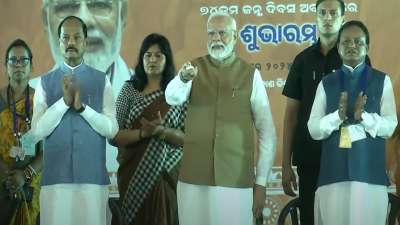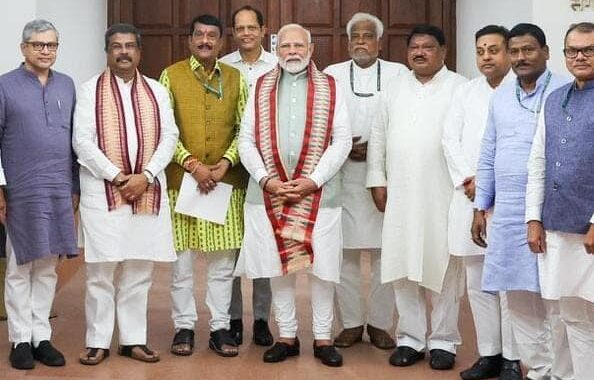Odisha government extends COVID-19 quarantine to 28 days

BHUBANESWAR: Faced with a large number of people testing positive for coronavirus way beyond the accepted incubation period of 14 days, Odisha government on Friday extended the quarantine period to 28 days. Every person returning from outside will now have to undergo compulsory institutional quarantine for 28 days instead of the existing 14-day period.
However, based on their conduct and health condition, they may be allowed seven-day home quarantine after completion of 21 days. The decision was taken in consultation with health experts and considering various reports about COVID-19 incubation period in the wake of several persons testing positive after the mandatory quarantine period of 14 days.
A fresh order issued by Chief Secretary Asit Tripathy stated that the quarantine period for all the people returning to Odisha will be 28 days in temporary medical camps (TMCs). People during home quarantine will have to strictly observe prescribed guideline and in case of any violation, stringent penal action will be taken, the Government has warned.
Quarantine period increased to 28 days
Gram Panchayat Nodal Officer (GPNO) or Ward Nodal Officer (WNO) will verify and ensure that the people in home quarantine follow the prescribed protocols without any violation. As decided, the in-charge of TMCs can involve the quarantinees in food preparation, campus cleanliness, sanitation of the facility, development of the campus and repair works as well as plantation within and near the campus.
“In case, the quarantinees contribute voluntary service for such activities, incentives of Rs 150 per day for up to 10 days (total Rs 1500) as honourarium will be paid from the Chief Minister’s Relief Fund,” the order stated.
This apart, yoga, cultural activities, book reading and storytelling, drawing and painting competitions, etc., will be organised to keep the returnees engaged and maintain their physical and mental health. The GPNO or WNO will also issue certificates to the returnees on basis of their behaviour, conduct and participation in voluntary works during the quarantine period.

 PM Modi launches ‘SUBHADRA’ – the largest women-centric scheme in Bhubaneswar, Odisha
PM Modi launches ‘SUBHADRA’ – the largest women-centric scheme in Bhubaneswar, Odisha  Berhampur Stadium & Khallikote College Stadium Development soon, Berhampur MP Dr. Pradeep Kumar Panigrahy in Parliament
Berhampur Stadium & Khallikote College Stadium Development soon, Berhampur MP Dr. Pradeep Kumar Panigrahy in Parliament  Actress Leslie Tripathy at India Leadership Conclave 2014
Actress Leslie Tripathy at India Leadership Conclave 2014  Berhampur-Jeypore Expressway at an approximate cost of Rs 9,000 crore, Centre greenlights Rs 15,000 crore for Odisha highway projects.
Berhampur-Jeypore Expressway at an approximate cost of Rs 9,000 crore, Centre greenlights Rs 15,000 crore for Odisha highway projects.  Berhampur MP raises better public healthcare infrastructure for Berhampur in Parliament
Berhampur MP raises better public healthcare infrastructure for Berhampur in Parliament  Actress Karnika Singh dons Sci Fi Character in India’s 1st Virtual Reality Sci-Fi film Movie STARGATE
Actress Karnika Singh dons Sci Fi Character in India’s 1st Virtual Reality Sci-Fi film Movie STARGATE 

